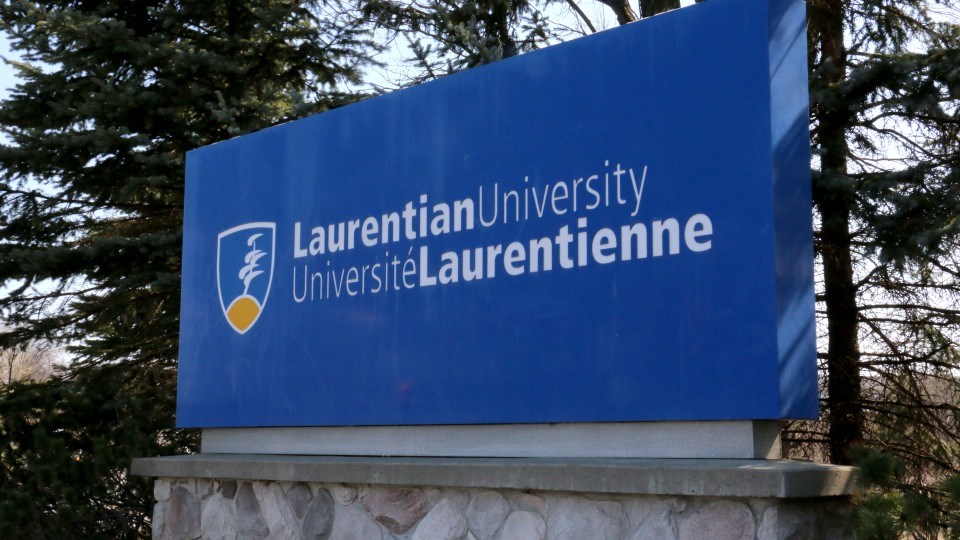Laurentian University asked the courts Aug. 17 to approve a methodology for compensating an estimated 1,200 current, former and retired university employees owed money as a result of the university’s insolvency and restructuring.
That includes the 194 full-time workers laid off by Laurentian this spring as part of its efforts to trim costs.
Laurentian has negotiated the terms of this compensation methodology with unions representing these workers, including the Laurentian University Faculty Association (LUFA) and the Laurentian University Staff Union (LUSU).
It’s expected that compensation calculations will be sent out to those owed money within 21 days, so approximately early September.
“Each individual that has been identified as a potential claimant will receive this statement of compensation claim,” said Liz Pilon, a representative of Ernst & Young, the firm that is the court-appointed monitor of Laurentian’s insolvency restructuring.
“It has a list of where the monitor and the applicant that specific compensation claimant may have a potential compensation claim … The individual can then look at the list, and determine if there is anything they want to raise as a potential update for the monitor that we should consider in terms of the information that is included. It’s quite detailed.”
Pilon said “a tremendous amount of work needs to be done” to get these 1,200 compensation forms out the door within 21 days.
Mitch Grossell, a lawyer with Laurentian’s insolvency attorneys, Thornton Grout Finch, said there are 10 different categories of claims under the aforementioned compensation framework.
Those include termination and severance, administrative leave for senior leaders, vacation pay and professional and research allowances.
Many Laurentian retirees are captured under the claims process because of what happened with the Retirees’ Health and Benefit Plan (or RHBP).
Because Laurentian did not establish a separate trust account for RHBP contributions, money paid into the fund by LU was “recorded as a liability” when the university declared insolvency. The RHBP was terminated April 30 as part of Laurentian’s restructuring.
The university proposes a “bar date” deadline of Oct. 14 for those who believe they have a compensation claim against Laurentian, but were not contacted about the matter, to submit an inquiry form.
The same deadline has also been proposed for former employees who have received a statement of compensation claim, but wish to dispute the information sent to them.
Chief Justice Geoffrey Morawetz, who heard the matter Tuesday, said at the beginning of the hearing it was his understanding that the plan being presented was “mostly unopposed.”
However, a few snags emerged during the proceedings.
Charlie Sinclair, the lawyer for LUFA, said his clients continued to have concerns surrounding the language that addressed compensation related to grievances. Negotiations had continued right up until the court hearing started at 9:30 a.m.
Morawetz ordered the parties involved in this issue into a breakout room, and they reported back within 20 minutes that they were able to come to an agreement on the matter.
There is also opposition related to the treatment of non-Laurentian employees (such as those working for federated universities) who were enrolled in the university’s retiree benefits plan (RHBP) being treated differently than Laurentian employees.
There is concern that the formula being applied to those associated with federated universities would result in them receiving less compensation than their Laurentian counterparts.
Laurentian attorney Mitch Grossell suggested the issue be deferred to Laurentian’s next court date on Aug. 27.
This date had been set aside to further extend the stay of proceedings protecting the insolvent university against its creditors.
Morawetz pointed out he’d set aside less than two hours for Laurentian on Aug. 27, but Grossell said there would be more talks with the involved parties, and he believed the issue could be dealt with in the allotted time.
Demetrios Yiokaris, a lawyer representing Thorneloe University, said his clients also hope a consensual path forward can be found with respect to the RHBP issue.
“That being said, we do point out that there is a live issue — I just wanted to flag this for you — with respect to the RHBP and Laurentian’s responsibilities with respect to the claims of the federated university retirees,” he said.
“Namely that Laurentian is not just the administrator of the plan, but they’re also the plan’s sponsor. And there’s a live issue as to whether they have an obligation to pay benefits to all beneficiaries, including the federated retirees.
“Our main concern with the draft language is that the retirees that work for the feds are being treated differently than the other plan beneficiaries by Laurentian. The draft proposed methodology would see the claims of the fed retirees against Laurentian be materially less than the other plan beneficiaries,” Yiokaris said.
Huntington University also submitted court documents saying it opposes the plan proposed by Laurentian because of the treatment of Huntington employees and retirees with respect to what they’re owed under the RHBP.
Laurentian’s compensation plan does not “treat the claims of Huntington’s employees and retirees the same as the claims of Laurentian’s employees and retirees,” said the court document submitted by Huntington.
Huntington said this is contrary to the transition agreement it signed with Laurentian when the university’s ties with federated universities operating on campus were severed this spring.
